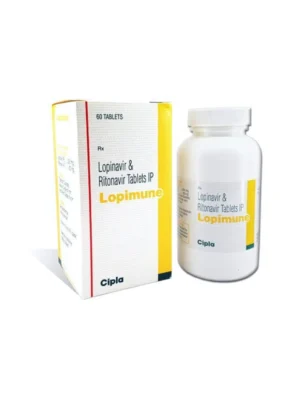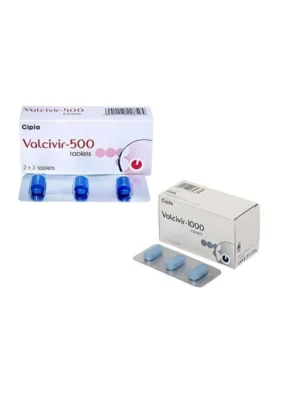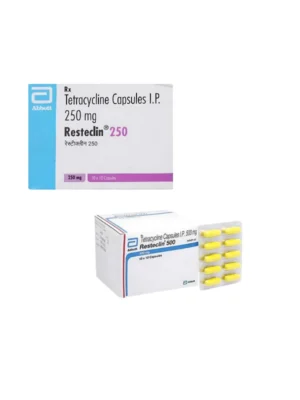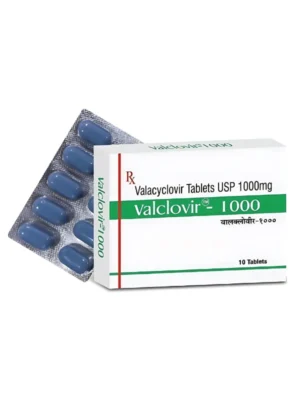Description
Fluvoxine Tablet (Fluvoxamine) – SSRI Antidepressant for Depression & OCD
Fluvoxine Tablet is a selective serotonin reuptake inhibitor (SSRI) antidepressant prescribed for treating depression, obsessive-compulsive disorder (OCD), anxiety disorders, and related mental health conditions. It works by increasing serotonin levels in the brain, helping to improve mood, reduce anxiety, and decrease unwanted thoughts. Unlike older antidepressants, Fluvoxine offers a favorable side effect profile with lower risks of severe adverse effects. Patients typically notice initial improvements in sleep and energy within 1-2 weeks, while full therapeutic benefits for mood may take 6-8 weeks. Always take as prescribed and continue treatment even after symptoms improve to maintain stability.
Uses of Fluvoxine Tablet:
- Major depressive disorder
- Obsessive-compulsive disorder (OCD)
- Social anxiety disorder
- Panic disorder
- Post-traumatic stress disorder (PTSD)
- Certain phobias
Benefits of Fluvoxine Tablet:
- Effective for both emotional and physical symptoms of depression
- Reduces obsessive thoughts and compulsive behaviors
- Lower risk of side effects compared to older antidepressants
- Non-sedating for most patients
- Improves overall quality of life
Side Effects of Fluvoxine Tablet:
- Nausea and vomiting (usually temporary)
- Dry mouth
- Insomnia or drowsiness
- Increased sweating
- Sexual dysfunction (decreased libido, delayed ejaculation)
- Tremors
- Indigestion
- Nervousness or restlessness
How to Use Fluvoxine Tablet?
Take exactly as prescribed by your psychiatrist, typically once daily at bedtime or as directed. Swallow the tablet whole with water – do not crush or chew. Can be taken with or without food, but consistency is important. Your doctor will likely start with a low dose and gradually increase to minimize side effects. Never adjust your dose or stop taking without medical supervision due to risk of withdrawal symptoms.
How Fluvoxine Tablet Works?
Fluvoxine is an SSRI that selectively inhibits serotonin reuptake in brain synapses. By blocking the serotonin transporter, it increases extracellular serotonin levels, enhancing neurotransmission. This mechanism helps regulate mood, reduce obsessive thoughts, and alleviate anxiety symptoms over time as the brain adapts to these changes.
Safety Advice:
- Alcohol: Strictly avoid – increases CNS depression
- Pregnancy: Use only if clearly needed after risk-benefit analysis
- Breastfeeding: Not recommended – potential risk to infant
- Driving: Caution advised until response is known
- Kidney/Liver Disease: Requires dose adjustment and monitoring
- Elderly: Lower initial doses recommended
What If You Miss a Dose?
Take the missed dose as soon as remembered unless it’s close to the next dose time. Never take double doses. If multiple doses are missed, contact your doctor as dose readjustment may be needed.
Serious Drug Interactions:
- MAO Inhibitors: Absolutely contraindicated (risk of serotonin syndrome)
- Other SSRIs/SNRIs: Increased serotonin syndrome risk
- Triptans: Potential for serotonin syndrome
- Warfarin: May increase bleeding risk
- Theophylline: Requires close monitoring
FAQs:
Q1. How long until I feel better on Fluvoxine?
Initial improvements in sleep/appetite may appear in 1-2 weeks, while full antidepressant effects typically take 6-8 weeks of consistent use.
Q2. Can Fluvoxine cause weight gain?
Weight changes are possible but less common with Fluvoxine compared to some other antidepressants. Monitor your weight and discuss concerns with your doctor.
Q3. Is Fluvoxine addictive?
No, but sudden discontinuation can cause withdrawal symptoms. Always taper under medical supervision.
Q4. Can I take Fluvoxine during pregnancy?
Only if clearly needed after thorough risk-benefit discussion with your psychiatrist and obstetrician.
Q5. Why must MAOIs be avoided with Fluvoxine?
The combination can cause serotonin syndrome – a potentially fatal reaction with high fever, seizures and heart problems.
Q6. What are signs Fluvoxine is working?
Improved sleep, more energy, better concentration, reduced obsessive thoughts, and gradual mood elevation.
Q7. Can it worsen anxiety initially?
Some patients experience temporary increased anxiety when starting treatment, which usually subsides within 1-2 weeks.
Q8. How is this different from other SSRIs?
Fluvoxine has particularly strong effects on OCD symptoms and may have fewer drug interactions than some other SSRIs.








There are no reviews yet.